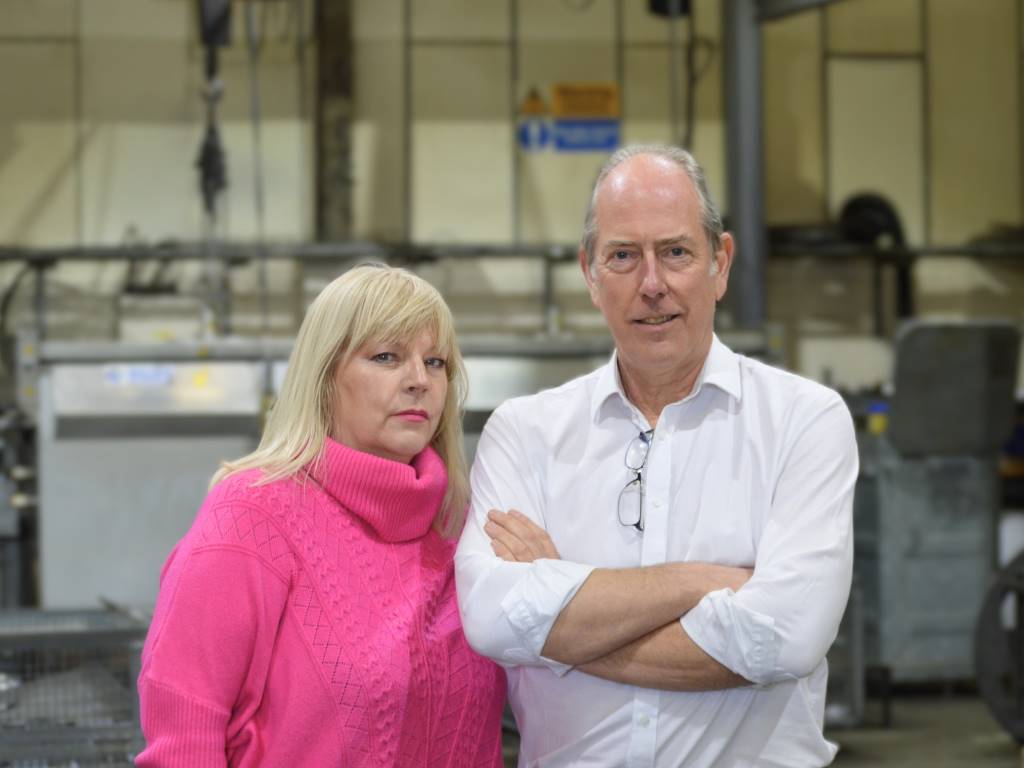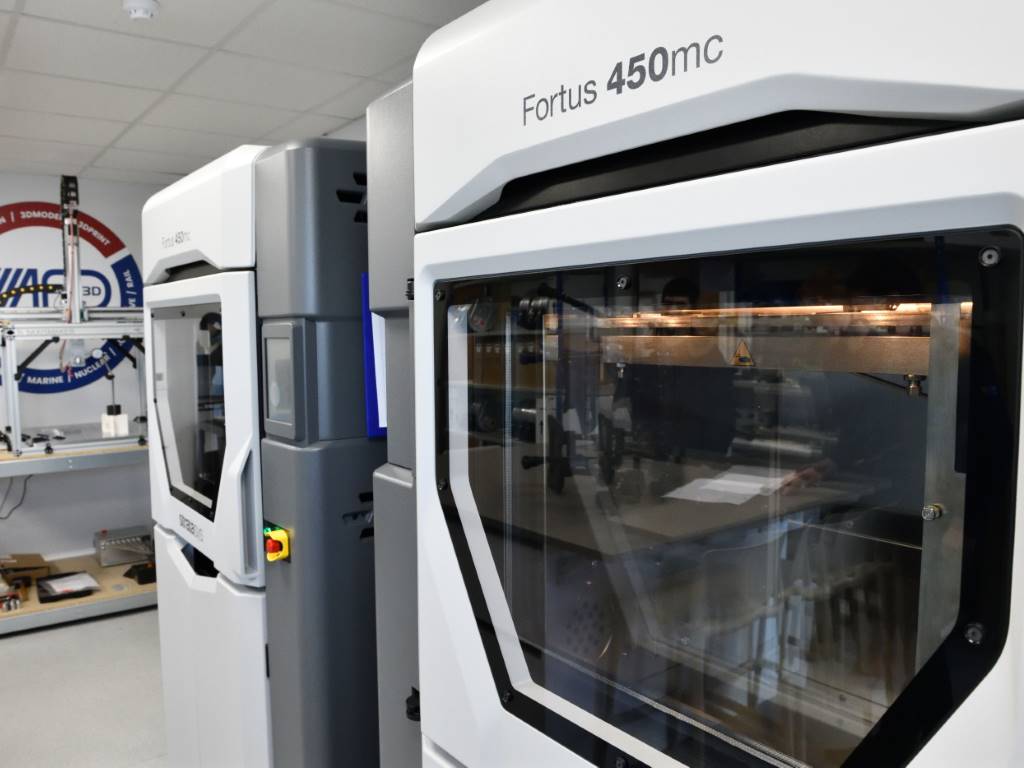Space-age precision

It's not often a business can trace its roots back to supplying parts to the 19th century shipping industry
, but fast forward nearly 200 years and one Birmingham-based company has taken its product range from the Victorian waters to all seven continents and three different planets.
Nestled away on a quiet back street on the outskirts of the city, you could quite easily drive past Precision Ceramics without looking twice. Yet behind its modest exterior lies an engineering company setting the pace across the global technical ceramic industry.
“Our parent company, McGeoch Technology, was founded 179 years ago in Scotland, initially making electrical system parts for the shipping industry; such as lighting systems, connectors and switchgear,” says Steve Swallow, managing director of Precision Ceramics.
“Having relocated to Birmingham in the early 20th century, the company continued to grow and expand. Yet as plastics came to the fore in the electrical industry, McGeoch decided to repurpose its existing ceramic process and handling knowledge into a dedicated business in the early 1990s. This led to the formation of Precision Ceramics.”
With a wide range of often unique properties, ceramics have the potential to be designed and engineered for the most extreme applications leading to them becoming a stalwart of the advanced engineering industry. Having worked for the likes of BAE Systems, Rolls-Royce, QinetiQ, F1 teams and Cern, Precision Ceramics is no stranger to meeting the demands of global engineering powerhouses.
Mr Swallow continues: “In Precision Ceramics' early days we were using just one or two machinable materials – the principal one being Macor. We had a simple set-up, using just a couple of machines for cutting and sawing. Fast forward 23 years and we're now able to machine 20 to 30 different ceramic materials; and we've gone from a very basic machine shop to having fourth and fifth axis technology.
“Engineers now come to us when they want to go beyond the limitations of metals and plastics – it could be for a number of reasons such as temperature, wear, electrical, magnetic field, or radiation. To do so, you invest in ceramics. We can then sit down with a company – many of whom may know metals and plastic well, but not ceramics – and talk them through their application; advise them on material options and design, and then supply the parts. We're effectively a one stop shop for technical ceramics.”
Abrasive conditions
Specialising in the fast turnaround of parts for prototype and small to medium batch orders generally from 10 to 1000, accuracy, flexibility, and reliability are the key requirements any piece of Precision Ceramics' machinery must be able to meet.
“As we've moved towards the manufacture of more complex ceramic parts we needed CNC technology which had a rapid response, was easy to programme, and could work to tight tolerances,” Mr Swallow explains. “What's more, as many of our materials are extremely abrasive, we were finding it increasingly difficult to find a machine tool provider that could meet all of these requirements to the standards we need.”
After evaluating a number of different machine tool manufacturers, Precision Ceramics looked to another leading Midlands manufacturer for a solution, Worcester-based Yamazaki Mazak.
“We initially trialled one Mazak turning machine,” recalls Precision Ceramics' business director, Geoff Randle, “and when we saw the accuracy and robustness the machine could offer, combined with very little downtime, we quickly began phasing out our older machines once they reached the end of their operational life. Now we have around 20; in fact most of the machine tools we've bought over the last ten years have been Mazaks.”
Given the intricate nature of much of Precision Ceramics' work, the company has chosen to invest in the smaller end of Mazak's range, particularly VMCs. These include a number of Vertical Center Smart and Vertical Center Nexus machine tools, and more recently, a Vertical Travelling Column machining centre for larger ceramic parts.
He continues: “Our machine occupancy rate is incredibly high – often varying from two to three shifts a day depending on demand and the proportion of set-up time to run time is probably significantly higher than companies with larger batch sizes. Given we're running hundreds of different batches a month, our machines have to be quickly and easily programmable.
“We know that we can put a Mazak machine in and it will last, working under very extreme conditions. We even use our Mazaks for some of our hardest ceramics such as boron carbide. They are rugged, reliable machines, and their overall design enables them to deal with both the impact and waste product of cutting such abrasive materials much more effectively than some others we have experienced.”
Turning up the heat
Precision Ceramics' commitment to manufacturing parts for the toughest environments is exemplified by its work for the Messenger orbital probe to Mercury. “The satellite used a plasma engine which meant using components with a combination of extreme properties,” Mr Swallow reveals. “You can't use polymers due to their size and performance so we made ceramic components that could withstand the vibrations of space. Ceramics can be fragile so we looked at our suite of materials that have an inherent toughness. The parts also needed to have very high electrical insulation properties. By using a ceramic, we could bring the weight and size right down to fit into the available space.
“Given Mercury's proximity to the sun, the satellite was switching from around 200°C to - 100°C many times a second as it rotated so the parts experienced significant levels of thermal shock. Many materials would either expand or fracture under those kinds of stresses; using a ceramic was the only way of achieving the right end result. The accuracy and precision of our Mazak machines, given the durability of the material, were integral to realising the end product.”
Looking to the future Precision Ceramics is keen to continue its leadership of the technical ceramics market. Taking stock of the company's achievements so far, Geoff Randle concludes: “There's a constant evolution in the marketplace, both of customer demands and the materials used. It's our responsibility to keep responding to them both and push the boundaries of what can be done with ceramics.
“But from starting off on sea ships to ending up on spaceships, I'd say that's pretty good.”
Yamazaki Mazak UK
www.mazakeu.co.uk
Precision Ceramics
www.precision-ceramics.co.uk














